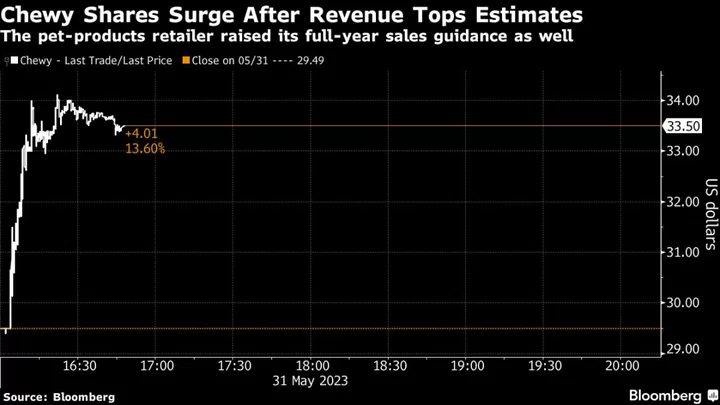The battle of the sexes gets bloody in Fair Play, the sleek feature debut from writer-director Chloe Domont.
Sometimes, that blood is nothing to worry about, like in an opening period sex scene that establishes intimacy between couple Emily (Phoebe Dynevor) and Luke (Alden Ehrenreich). But by the end of the film, bloodshed of a more violent kind has shaken the foundations of Emily and Luke's relationship — along with pointed comments and arguments that, while not physically harmful, certainly cut deep.
SEE ALSO: 27 films we can't wait to see this fallAs it takes Emily and Luke from the bliss of Point A to the violence of Point B, Fair Play seeks to skewer gender and power dynamics in the workplace and in relationships. These explorations earned the film major buzz and acclaim out of Sundance — as well as a massive $20 million deal from Netflix — but is it worth the hype?
To some degree, yes. Domont delivers an engaging, artfully tense relationship drama starring two killer leads in Dynevor and Ehrenreich. Yet the film's commentary on gender is nothing particularly groundbreaking or subversive, striking familiar chords even as it tries to provoke.
What's Fair Play about?
Alden Ehrenreich and Phoebe Dynevor in "Fair Play." Credit: Courtesy of NetflixDomont invites us into the male-dominated world of hedge fund One Crest Capital, where Emily and Luke work as analysts. Even though the two have recently gotten engaged, they have to hide their relationship from their coworkers, as it breaks company policy. Emily is especially wary of the risks this secret relationship poses to her own career. How would her sexist, cutthroat co-workers react if they found out she was seeing someone else at the company?
Emily and Luke may be able to compartmentalize their personal and work lives to some extent, but all hope of keeping work and love separate goes out the window once Emily receives a promotion Luke thought he was going to get. The promotion makes Emily Luke's direct supervisor, and their relationship spirals faster than you can say "HR violation."
Luke's turn is nothing short of sinister. Initially, he claims to be supportive. But as Emily succeeds at work and gains social capital in the office — she gets to go for drinks with boss Campbell (Eddie Marsan), she takes a car to work while he takes the train — his "nice guy" facade vanishes. Snide remarks about Emily's outfits or her new closeness to Campbell betray Luke's true feelings, as he reckons with his girlfriend getting the promotion he believes he was owed.
SEE ALSO: 'Sex Education' perfectly sums up the politics and intimacy issues around sending nudesFair Play comments on gender dynamics, with mixed results.
Phoebe Dynevor and Alden Ehrenreich in "Fair Play." Credit: Sergej Radovic / Courtesy of NetflixDomont teases out Luke's descent with nail-biting precision, with Ehrenreich giving a captivating performance that is equal parts menacing and pathetic. However, Luke's arc follows predictable beats — especially since we've already seen a man lose his mind at being a woman's inferior earlier this year in Barbie. And even that had unexpected twists and turns (such as a certain musical number), while Fair Play hinges on more formulaic tropes, like a drunken breakdown.
The path Emily walks in Fair Play proves far more interesting. She's certainly better at her job than Luke, and likely more savvy than other portfolio managers at One Crest. She's also aware of the target being a woman at the company puts on her back. Early reactions to her promotion include rumors that she's slept her way to the top, rumors Luke himself begins to believe.
So on top of her extreme competence, Emily finds herself having to play the other men's games, including going to strip clubs with her fellow PMs and laughing at their crass stories of college hookups gone wrong. Despite her attempts to fit in, Emily is always aware of her outsider status, a vulnerability Dynevor captures exceptionally throughout.
With Emily, Fair Play also tries to highlight the corrupting quality of power, especially when she pulls rank on Luke outside of the workplace. Unfortunately, as with Luke's festering anger, these power trips spill into predictable territory — especially when it comes to Fair Play's treatment of sex.
For all the buzz out of Sundance that Fair Play is a steamy erotic thriller, the film isn't all that sexy. Beyond the early period sex, later sex scenes (of which there are few) mostly involve cutting to black. Eroticism all but flies out the window entirely as Fair Play enters its final act, although that absence feels more like a deliberate choice given the inevitable falling out between Emily and Luke.
There is certainly a lot to love in Fair Play, from Dynevor and Ehrenreich's chemistry to white-knuckle scenes of hedge fund intrigue. But the film can't fulfill its own ambitious attempts to interrogate the intersections of power, gender, and ego. While Fair Play isn't completely reductive in its portrayal of sexual politics, it certainly isn't revelatory, either.
Fair Play is in select theaters now and streaming on Netflix Oct. 6.









